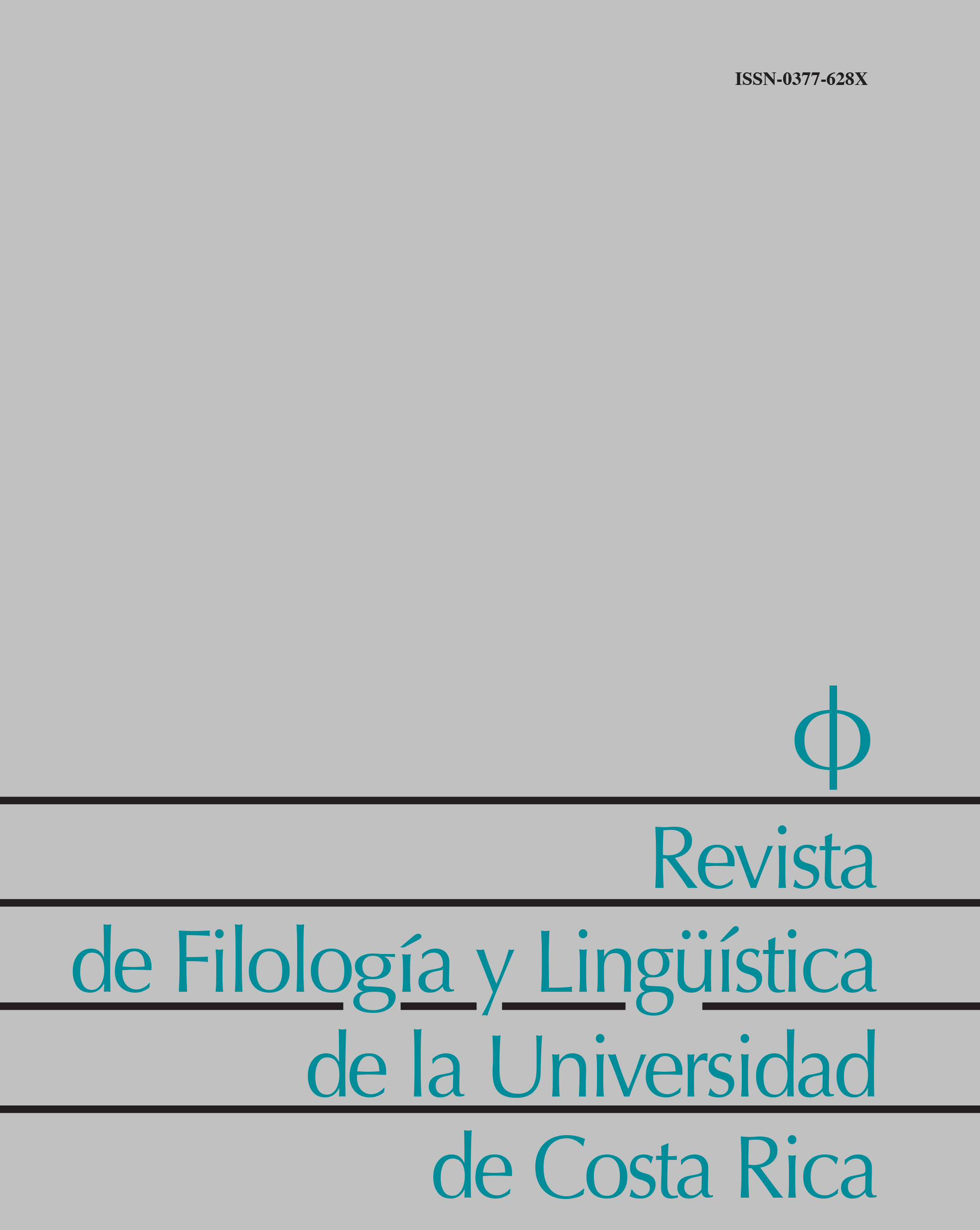Abstract
It is a reality that the university today is providing economic and academic facilities for university students to do part of their studies in another cultural context different to their own. The profits of this effort from the administration as well as from the students themselves are often difficult to quantify. In the field of language acquisition, it is often believed that students studying surrounded by the target language are better than those studying it only in the classroom (Howard, 2001; 2005; Martínez-Arbelaiz & Pereira, 2008; Meara, 1994; Milton & Meara, 1995; Pérez-Vidal & Juan-Garau, 2009; Pérez-Vidal, 2014; Segalowitz & Freed, 2004). However, there are few studies that have investigated what kind of impact this experience abroad has on the development of students’ transcultural competence (Modern Language Association, 2007), one of the main goals of any language curriculum. In three filmed classes from three different small size courses we analyzed the classroom discourse. We found that U.S. students in Madrid are critical observers of the host community and that these observations led them to challenge and refine previous ideas on Spanish society.
References
Bacon, S. M. (2002). Learning the rules: Language development and cultural adjustment during study abroad. Foreign Language Annals. 35 (6), 637-646.
Benson, P., Barkhuizen, G., Bodycott, P., y Brown, J. (2013). Second language identity in narratives of study abroad. Nueva York: Palgrave Macmillan.
Block, D. (2007). The rise of identity in SLA research, post Firth and Wagner (1997). The Modern Language Journal. 91 (1), 863-876.
Braun, V., y Clarke, V. (2006). Using thematic analysis in psychology. Qualitative research in psychology. 3 (2), 77-101.
Byram, M. (1997). Teaching and assessing intercultural communicative competence. Clevedon: Multilingual Matters.
Byram, M., Nichols, A., y Stevens, D. (2001). Developing the intercultural dimension in practice. Clevedon: Multilingual Matters.
Doerr, N. M. (2012). Study abroad as ‘adventure’: Globalist construction of host–home hierarchy and governed adventurer subjects. Critical Discourse Studies. 9 (3), 257-268.
Doerr, N. M. (2013). Do ‘global citizens’ need the parochial cultural other? Discourse of immersion in study abroad and learning-by-doing. Compare. 43 (2), 224-243.
Dytynyshyn, N., y Collins, L. (2012). Culture and Interculturality in the Adult ESL Context in Urban Quebec: A Case Study. TESL Canada Journal. 30 (1), 45-68.
Goldoni, F. (2013). Students’ immersion experiences in study abroad. Foreign Language Annals. 46 (3), 359-376.
Gore, J. E. (2005). Dominant beliefs and alternative voices: Discourse, belief, and gender in American study abroad. Nueva York: Routledge.
Howard, M. (2001). The effects of study abroad on the L2 learner´s structural skills: Evidence from advanced learners of French. Eurosla Yearbook. 1, 123-141.
Howard, M. (2005). On the role of context in the development of learner language: Insights from study abroad research. International Review of Applied Linguistics. 148, 1-20.
Jackson, J. (2008). Language, Identity and Study Abroad. Sociocultural Perspectives. Londres: Equinox.
Kramsch, C. (1993). Context and culture in language teaching. Oxford: Oxford University Press.
Kramsch, C. (2009). Third Culture and Language Education. Por L. Weis y V. Cook (Eds.), Contemporary Applied Linguistics. (Vol. 1). (233-254). Londres: Continuum.
Magos, K., y Simopoulos, G. (2009). ‘Do you know Naomi?’: Researching the intercultural competence of teachers who teach Greek as a second language in immigrant classes. Intercultural Education. 20 (3), 255-265.
Martínez-Arbelaiz, A., y Pereira, I. (2008). La adquisición del pretérito imperfecto en situación de inmersión. Spanish in context. 5 (2), 161-181.
Meara, P. (1994). The year abroad and its effects. Language Learning Journal. 10, 32-38.
Menard-Warwick, J. (2009). Co-constructing Representations of Culture in ESL and EFL Classrooms: Discursive Faultlines in Chile and California. The Modern Language Journal. 93 (1), 30-45.
Menard-Warwick, J. (2008). The cultural and intercultural identities of transnational English teachers: Two case studies from the Americas. TESOL quarterly. 42 (4), 617-640.
Merino, E., y Avello, P. (2014). Contrasting intercultural awareness at home and abroad. Por C. Pérez-Vidal (Ed.). Language acquisition in study abroad and formal instruction contexts. (Vol. 13). (283-309). Amsterdam: John Benjamins Publishing Company.
Milton, J., y Meara, P. (1995). How periods abroad affect vocabulary growth in a foreign language. ITL Institut voor Togepaste Linguistik. 107-108, 17-34.
Modern Language Association (2007). Foreign Language and Higher Education. New Structures for a Changed World. http://www.mla.org/flreport [Consulta 10 de enero de 2014].
Pérez-Vidal, C. (Ed.). (2014). Language acquisition in study abroad and formal instruction contexts. (Vol. 13). Amsterdam: John Benjamins Publishing Company.
Pérez-Vidal, C., y Juan-Garau, M. (2009). The effect of Study Abroad (SA) on written performance. Eurosla yearbook. 9 (1), 269-295.
Pica, T. (2002). Subject-Matter Content: How does it assist the Interactional and Linguistic Needs of Classroom Language Learners? The Modern Language Journal. 86 (1), 1-19.
Segalowitz, N., y Freed, B. A. (2004). Context, contact, and cognition in oral fluency acquisition. Studies in Second Language Acquisition. 26 (2), 173-199.
Takkula, H., Kangaslahti, J., y Banks, J. (2008). Teaching transcultural competence: From language learning to experiential education. Policy & Practice-A Development Education Review. 7, 88-95.
Vande Berg, M. (2009). Intervening in student learning abroad: A research-based inquiry. Intercultural Education. 20 (1), S15-S27.

